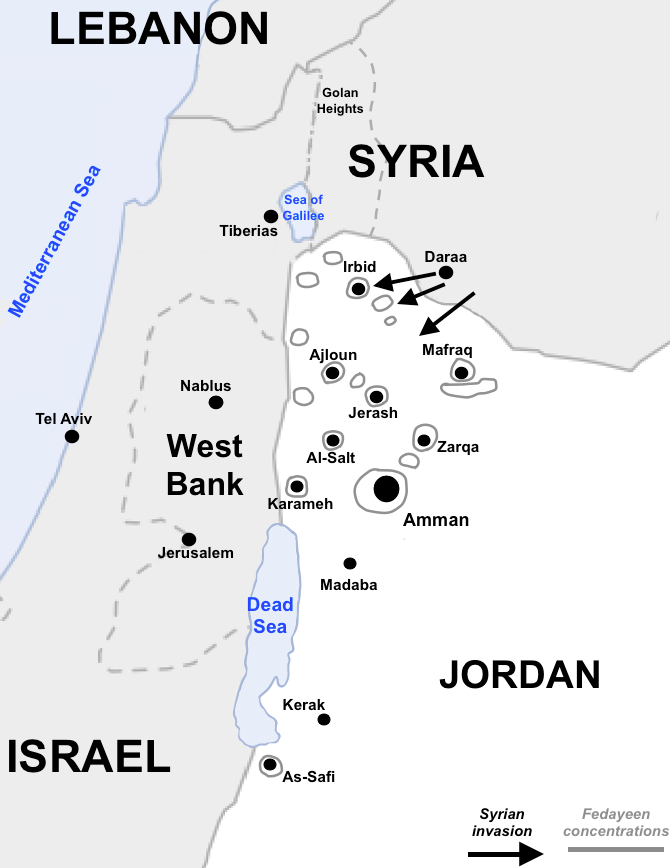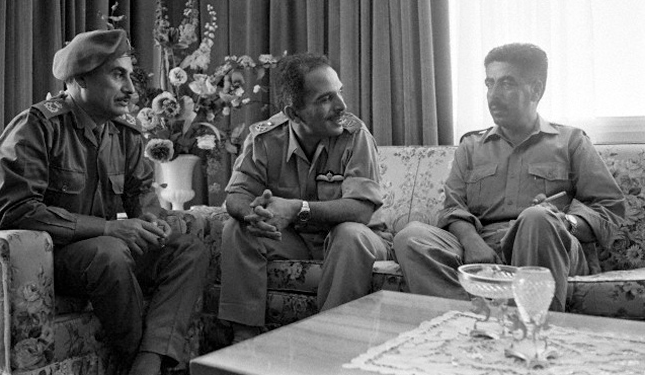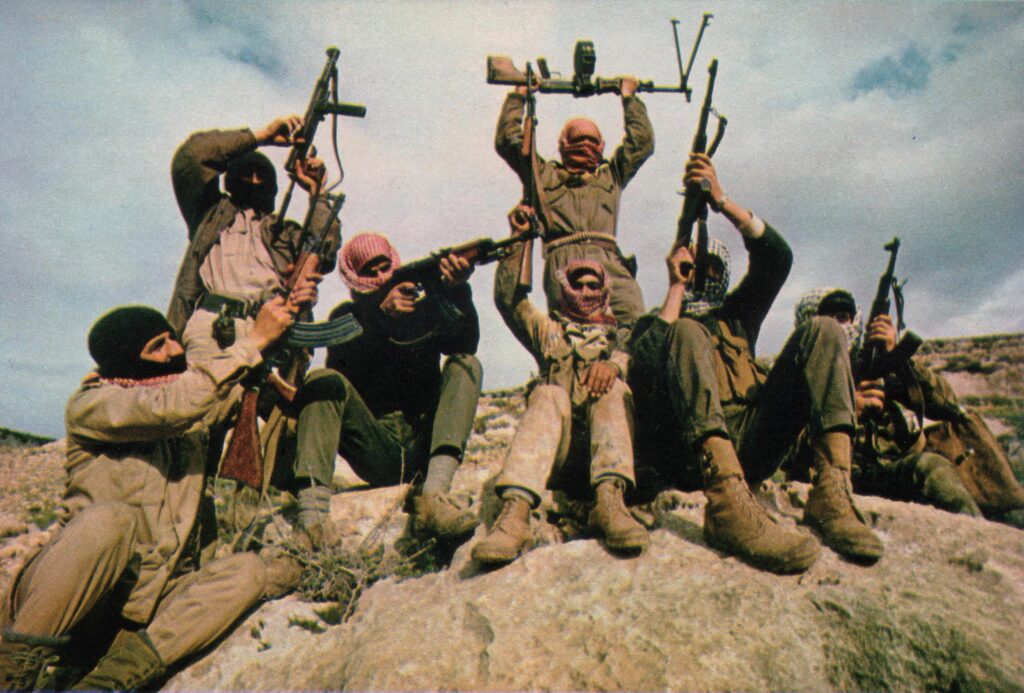September 17, 1970
King Hussein sends the Jordanian army to attack the headquarters of Palestinian militant groups in and around the capital, Amman, and the city of Irbid, where the militants, known as fedayeen, had seized control two days earlier.

The Palestine Liberation Organization and factions such as Yasser Arafat’s Fatah and the Popular Front for the Liberation of Palestine had built up significant bases east of the Jordan River, especially in the north of Jordan, since Israel had captured the West Bank in June 1967. As many as 20,000 Palestinian militants operated in Jordan and raided and shelled Israel. Taking advantage of the precarious position of Hussein, the Palestinians paid little heed to the Jordanian government.
Palestinians attempted to assassinate the king June 9, 1970, leading the Jordanian army to shell Palestinian refugee camps, and again September 1, 1970. Then the PFLP hijacked four airliners at once and brought three of them to an airfield in Jordan, where the terrorists blew up the planes in a show for international media September 12. That embarrassing lack of control in his country and the seizure of Irbid on September 15 led Hussein to declare martial law.
While the Jordanians and Palestinians engage in fierce urban fighting beginning September 17, Jordan faces two external threats. Syrian tanks and infantry move into the northwest of Jordan on September 18, and a force of 20,000 Iraqi soldiers occupies eastern Jordan. But threatened Israeli intervention and effective Jordanian military deployment persuade the Syrians to withdraw within days, and an intelligence ruse convinces the Iraqis that they cannot help the fedayeen, lest they face American airstrikes.
Arafat and Hussein sign a cease-fire September 27 in Cairo through the mediation of Egyptian President Gamal Abdel Nasser, who dies the next day. Jordan reports that 537 of its soldiers are killed in the fighting. Arafat says 25,000 Palestinians are killed; other sources estimate 2,000 to 4,000 Palestinian militants and an unknown number of civilians killed. Regardless of the exact numbers, the Palestinian casualties are heavy enough and the loss of Palestinian power great enough that September 1970 is known as Black September. A Fatah faction forms that month and takes the name Black September Organization with the idea of avenging the losses; that group assassinates the Jordanian prime minister in November 1971 and massacres Israelis at the 1972 Summer Olympics in Munich.
Feeling empowered, Hussein keeps up the pressure on the Palestinian militants after September until he expels the PLO in July 1971. Arafat and his forces relocate to Lebanon, where they remain until being driven out by the Israeli invasion in 1982 and moving to Tunisia. Jordan and the PLO continue their antagonism for two decades after Black September, primarily about who should speak for the Palestinians in the West Bank.










